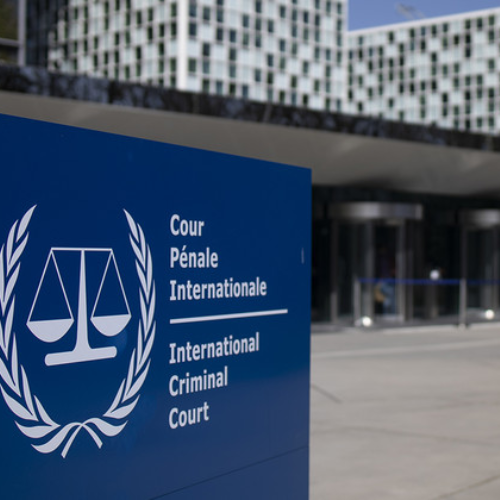The United States has placed tough sanctions on four judges from the International Criminal Court (ICC). These judges—Reine Alapini-Gansou from Benin, Beti Hohler from Slovenia, Luz del Carmen Ibáñez Carranza from Peru, and Solomy Balungi Bossa from Uganda—have all been involved in cases connected to Israel.
The move comes after the ICC issued an arrest warrant for Israeli Prime Minister Benjamin Netanyahu. The court accuses him of war crimes during Israel’s military actions in Gaza and the West Bank following the Hamas attacks in October 2023. The U.S. government is strongly opposed to this investigation and believes the ICC is acting unfairly.
The U.S. State Department announced that it would freeze any assets the judges hold in the United States. This means the judges won’t be able to use money, property, or bank accounts in the country. They will also face restrictions on entering the U.S.
Secretary of State Marco Rubio said in a statement that the U.S. will do everything it can to protect its national security and the security of its allies, especially Israel. He accused the ICC of being “politicized” and trying to wrongly go after American and Israeli leaders.
From The Hague to Handcuffs? U.S. Threatens 900 ICC Staff with Arrest for War Crimes Investigations
Judges Linked to Key ICC Decisions
Reine Alapini-Gansou was part of the ICC’s pre-trial chamber that approved the investigation into alleged Israeli war crimes in 2021. She was also one of the judges who signed off on the arrest warrant for Netanyahu. In 2023, she helped issue the arrest warrant for Russian President Vladimir Putin, which led Russia to issue its own warrant for her.
Beti Hohler, elected in 2023, previously worked as a prosecutor at the ICC. Israel has raised concerns about her participation in Israel-related cases, but she stated that she never worked on any investigations involving the Palestinian territories during her time as a prosecutor.
Judges Luz del Carmen Ibáñez Carranza and Solomy Balungi Bossa both serve on the ICC appeals bench. They have taken part in reviewing cases that relate to Israel’s military conduct. All four judges are now the targets of U.S. sanctions because of their involvement in these ICC processes.
Israel’s Economic Future at Risk as Europe Considers Freezing Billions in Currency Reserves
U.S. Returns to Past Tactics
This is not the first time the U.S. has used sanctions to punish the ICC. During Donald Trump’s first term, the administration imposed similar penalties against ICC officials. One major target was the court’s chief prosecutor, Karim Khan. He was sanctioned earlier this year and barred from doing business with U.S. citizens. His entry into the U.S. was also restricted. Khan later stepped down after being accused of sexual misconduct, though the investigation is still ongoing.
The U.S. and Israel do not recognize the authority of the ICC. They argue that the court should not be allowed to investigate their officials since neither country is a member of the court.
Human rights groups, however, are pushing back. Liz Evenson from Human Rights Watch said the sanctions are being used to scare the court and stop it from holding powerful countries accountable. She called the move a “flagrant attack on the rule of law,” especially at a time when serious crimes are being reported in Gaza.
The U.S. insists that its actions are necessary to defend its allies and to stop what it sees as unfair targeting by the ICC. Meanwhile, the court continues its work, facing both legal challenges and political pressure from powerful nations.


